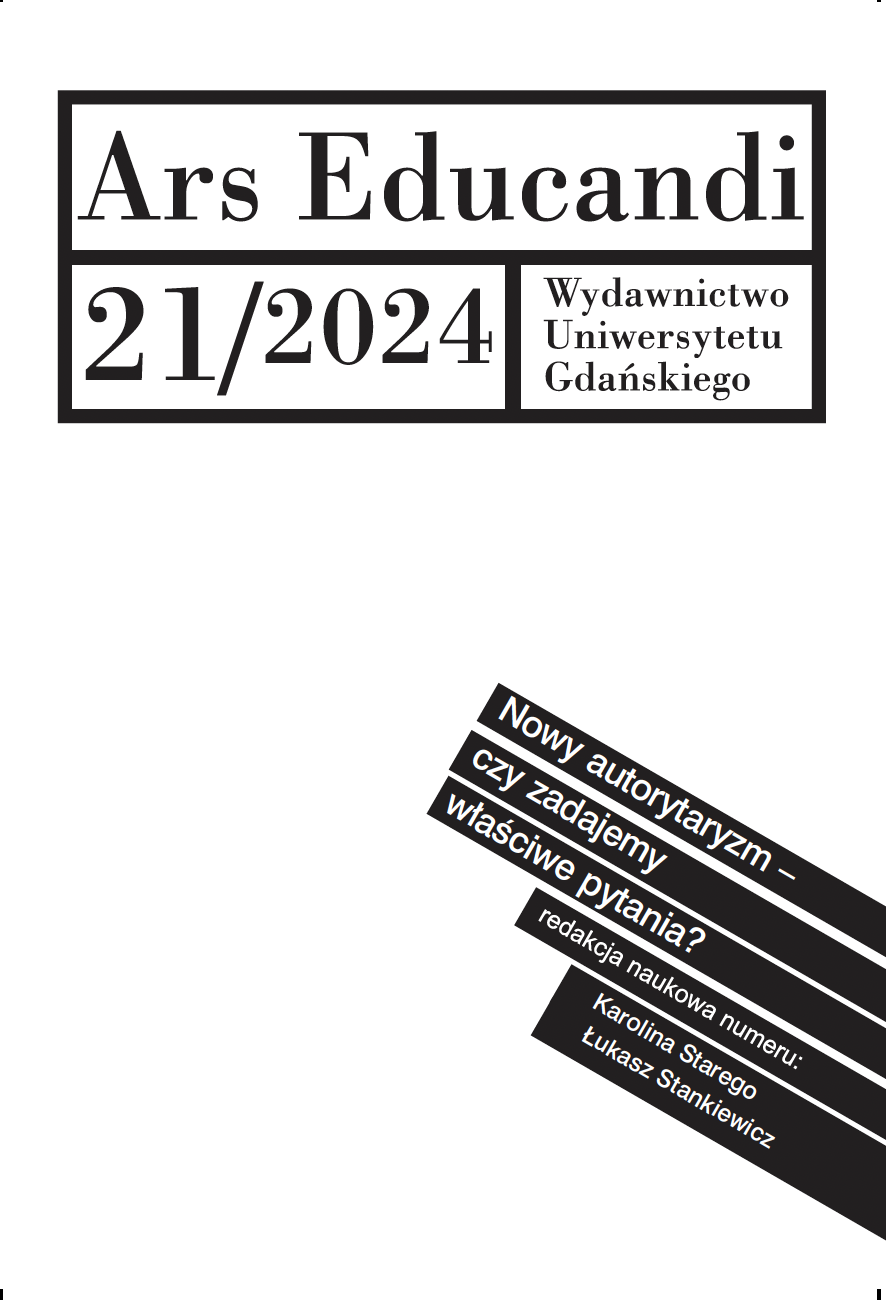Women's Agricultural Production in Guinea-bissau as a Means of Strengthening Their Identity
DOI:
https://doi.org/10.26881/ae.2024.21.05Słowa kluczowe:
Guinea-Bissau, Horticulturists, Women, Informal agricultureAbstrakt
This article was developed from the study done for the Swiss Cooperation in Guinea-Bissau on women horticulturists. The data were obtained by surveys and interviews in the regions of Bissau, Biombo, Bafatá and Oio, with the producers (which also include a limited number of male producers) of leguminous agricultural products, in a sample of 160/1063 people chosen at random. To better understand the results, it must be said that this business model is not very profitable, but it is an activity that gives a greater independence of women in relation to men in the family space, combating the existing male authoritarianism, since decisions about the use of profits belong to the women producers. It also has a potential environment of action for the affirmation of the social (and not just family) identity of women that should not be despised although, as far as we can see, this is expressed for now only in the organization of associations of producers. The data matrix and the qualitative observations file are the property of SWISSAID, but the tables obtained from it can be provided to researchers who request them.
Downloads
Bibliografia
Adama Baldé e Rita Cavaco (2023) A condição das mulheres na Guiné-Bissau, Cadernos da Casa dos Direitos, Bissau Available:https://drive.google.com/file/d/1HGQywdaony22HgnKlN5qHvxGSwx8MV--/view?pli=1
Alan Bryman, Kuke Sloan, Liam Foster and Tom Clark, (2021) Bryman´s Social Research Methods, sixth edition, Oxford University Press.
Angèle Bernard, Tanguy Castex, Emma Castro, Pauline Cosme, Vincent EtombaVialette, Analisa Magalhaes, Mathilde Marty, Mara Melo (2022) Rapport d’ExpertiseRisque Pays Guinée Bissau Année 2020 – 2021. Sciences Po Bordeaux.
Boserup, E. (2007). Woman's Role in Economic Development. Earthscan.
Bull M., (1987). Situação das Mulheres Manjacas e Mandingas: Relatório de um Pequeno Estudo de Campo Realizado do em Duas Tabancas da Guiné-Bissau. Instituto de Antropologia Social. Secção de Estudos do Desenvolvimento Universidade de Estocolmo.
Cabral, A, (s.d.) Livro textos e poema. Available:http://www.amilcarcabral.org/livro.pdf
Camará, S. T. (2010). Lumo – Estatuto, funcionamento e organização dos Mercados Periódicos na Guiné-Bissau – estudo de caso no lumo de Mafanco. ISCTE-IUL, Lisboa.
Carlos Lopes, (1987). A Transição Histórica na Guiné-Bissau: do Movimento de Libertação Nacional ao Estado. INEP. Kacu Martel. Bissau
Carlos Sangreman, Fátima Proença, Luís Vaz Martins, Mamadu Alfa Djau, Pedro Rosa Mendes e Rui Jorge Semedo (2019), Guiné-Bissau – Notas sobre o presente e o futuro. CESA - ISEG/Universidade de LisboaAvailable:https://www.researchgate.net/publication/337448432
Carlos Sangreman, BubacarTuré, CabiSanhá, Ivo Barros, Nelvina Barreto (2020), Observando Direitos na Guiné – Bissau, educação, saúde, habitação, água, energia, justiça, igualdade de género,Cap. Igualdade de Género, Projeto Observatório de Direitos, ACEP com LGDH e CEsA, Lisboa e Bissau.Available:https://www.researchgate.net/publication/346677294
Catarina Laranjeiro (2018) Entre as imagens e os espíritos: encontros com a memória da guerra de libertação na Guiné-Bissau, tese de doutoramento, Universidade de Coimbra. Available:https://estudogeral.uc.pt/handle/10316/87465
Christophe R. Quétel, Guy Bordin, Alexandre Abreu, IlektraLemi& Carlos Sangreman (2021): On the Nature and Determinants of Poor Households’ Resilience in Fragility Contexts, Journal of Human Development and Capabilitie.Available:https://www.researchgate.net/publication/352018412_On_the_Nature_and_Determinants_of_Poor_Households'_Resilience_in_Fragility_Contexts
Cleonismar Silva (2021) Estudo sobre a Situação dos Direitos das Mulheres à Terra nas Zonas de Intervenção do Programa SWISSAID. Guiné-Bissau, Bissau
Rosemary E. GalliUrsula Funk (1992-1994) O ajustamento estrutural e género na Guiné-Bissau
In: Revista Internacional de Estudos Africanos / dir.Jill R. Dias.Nº 16-17, Lisboa.
Guiné BissauCódigo Civil e Legislação Complementar- CEARL Guiné 2006 –
Herbert Arkin and Raymond R. Colton (1963) Tables for statisticians,Barnes & Noble,New York
Hochet, A-M., (1981), Étude des habitudes de consommation et des besoinsenproduitsd'importation des populations rurales de Guinée-Bissau, Ministério da CoordenaçãoEconómica e Planeamento, Bissau, República da Guiné Bissau.
LassanaCassamá (2023) Mulheresna Guiné-Bissau, Jornal Voa. Available:https://www.voaportugues.com/a/mulheres-na-guin%C3%A9-bissau-um-sonho-de-am%C3%ADlcar-cabral-ainda-por-realizar/7280201.html
Maria Manuela Domingues (2000) Estratégias femininas entre as bideiras de Bissau Universidade Nova de Lisboa F.C.S.H.
Moustier, P. (1993). Rapport de mission du 16/11/92 au 15/12/92 en Guinee-Bissausystemes maraichers approvisionnant Bissau enquête exploratoire. CIRAD-CA.
Odete Semedo e Miguel Barros, (2013) A participação das mulheres na política e na tomada de decisão na Guiné-Bissau. UNIOGBIS, Bissau
Patricia Gomes (2008).As mulheres do sector informal. Experiências da Guiné-Bissau. DipartimentoStoricoPoliticoInternazionaledell’Età Moderna e Contemporanea, Universidade de Cagliari Available:http://www.cisa-as.uevora.pt/download/EncontrosEmpreendedorismo/Artigo%20de%20Patricia%20Gomes.pdf
Pedro Rosa Mendes(2019), Os militares e a impunidade legitima, cap 4, inGuiné-Bissau – Notas sobre o presente e o futuro. CESA - ISEG/Universidade de Lisboa Available:https://www.researchgate.net/publication/337448432
UNIOGBIS (2020) Noticia sobre a aprovação da Lei.Available:https://uniogbis.unmissions.org/pt/quota-de-36-por-cento-no-poder-garante-justi%C3%A7a-social-para-mulheres-guineenses
World Bank (2021) Guinea Bissau Poverty Assessment,Available:https://documents1.worldbank.org/curated/en/404761594968166474/pdf/Guinea-Bissau-Poverty-Assessment

 Uniwersyteckie Czasopisma Naukowe
Uniwersyteckie Czasopisma Naukowe




